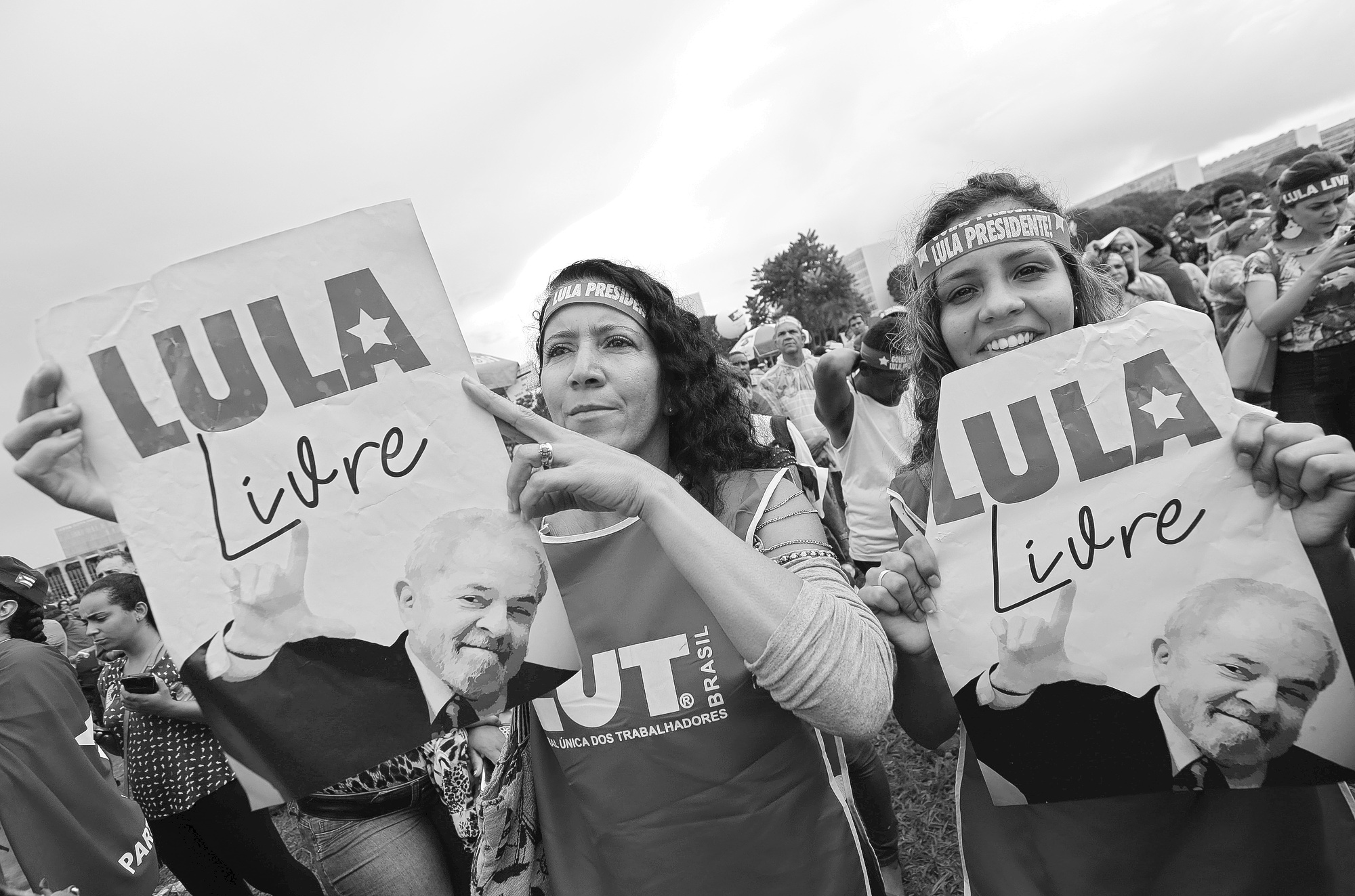
By PETER PRENGAMAN
MAURICIO SAVARESE
Associated Press
RIO DE JANEIRO (AP) — Justices on Brazil’s top court appeared to be moving Wednesday night toward denying a petition from former President Luiz Inacio Lula da Silva to stay out of prison while he appeals a 12-year sentence for corruption, a ruling that could affect the country’s stability ahead of October elections. Da Silva leads presidential polls despite his conviction and several other corruption charges that have yet to be tried.
A Supreme Federal Tribunal decision to allow a lower court to force the ex-leader to begin serving his sentence could all but doom his candidacy and generate protests at a time of high tension in Latin America’s largest nation. Six hours into the session, four justices had voted against da Silva and one in his favor. The matter would be decided once six of the 11 members voted a particular way. The session was expected to run far into the night. Justice Gilmar Mendes, who voted in favor of da Silva’s petition to stay out of jail, argued the court couldn’t make decisions based on popular opinion.
“If a court bows (to pressure), it might as well not exist,” said Mendes. Justice Luis Roberto Barroso argued that the integrity of the justice system was at stake. “A penal system that doesn’t work with minimal effectiveness leads to an instinct for taking justice into one’s own hands,” said Barroso, who voted against the petition. Justice Rosa Weber, who legal analysts said could be key because there was much doubt about her position on the matter, voted against da Silva. In a sign of how fraught the case was, after Weber’s vote, justice Marco Aurelio Mello accused Chief Justice Carmen Lucia of plotting against da Silva’s case.
Mello said limiting the vote just to the habeas corpus petition and not the merits of the conviction against da Silva helped sway Weber’s vote. “I want this to be registered in the court’s records,” Mello told Lucia, who responded by saying “yes” to the request. The session reflected the debate happening across Brazil as millions tuned into the televised session.
On the eve of the session, the country’s army commander raised eyebrows — and was widely celebrated and condemned online — with tweets subtly supporting da Silva’s incarceration.
Gen. Eduardo Villas Boas posted two tweets Tuesday night that many interpreted as a form of pressure on the 11 justices on the Supreme Federal Tribunal and a veiled threat of intervention. Such concerns are taken seriously in a country that experienced a 1964-1985 military dictatorship. “In Brazil’s current situation, it’s worth asking our institutions and the people who is really thinking about what is best for the country and future generations, and who is only worried about their personal interests?” the general wrote in one tweet.
In a second tweet, Boas wrote that he shared people’s anxiousness and “repudiated impunity.” O Globo, one of the country’s leading newspapers, criticized the comments, saying in a Wednesday editorial that a military chief should “not be opining over judicial and political questions.” In a statement to O Globo, Gen. Joaquim Silva e Luna, the defense minister, said Boas’ intention was to assure people that force would not be used.
Da Silva, who was once wildly popular after his two terms as president from 2003 to 2010, has become a polarizing figure amid a massive corruption scandal that has roiled Brazil the last several years and made average citizens furious with the political class. Da Silva was convicted last year of helping a construction company get sweetheart contracts in exchange for the promise of a beachfront apartment. The conviction was handed down by Judge Sergio
Moro, who is presiding over cases involving the so-called “Car Wash” investigation.
Supporters hail Moro as a hero taking on endemic corruption while detractors, particularly supporters of da Silva’s Workers’ Party, consider him a partisan hit man. Da Silva has always maintained his innocence, saying this case as well as several other corruption charges that have yet to be tried are attempts to keep him off the presidential ballot. However, da Silva’s denials received a blow in January, when an appeals court upheld the conviction involving the beachfront apartment. The three reviewing magistrates even lengthened the sentence to 12
years and one month.
While da Silva, known simply as “Lula” to Brazilians, has further appeals available, he could be forced under Brazilian law to begin serving his sentence, which Moro and the other judges have ordered. Da Silva’s lawyers argue their client has a constitutional right to stay out of jail until all appeals are exhausted. However, in an unrelated case in 2016, the Supreme Federal Tribunal disagreed with that logic, ruling that a convict could start serving a sentence after a first appeal was denied. Throughout all the legal battles, da Silva has been campaigning nationwide, criticizing detractors and promising not to give up.
Last week, while campaigning in the southern state of Parana, where Moro convicted him, two buses in his caravan where hit with bullets. Nobody was hurt. “There will be no good result in this trial,” said Carlos Melo, a political science professor at Insper University in Sao Paulo. “Half of Brazil will be disappointed no matter what, and nobody knows how that
disappointment will play out in the elections.”
___
Peter Prengaman on Twitter: twitter.com/peterprengaman
Mauricio Savarese on Twitter: twitter.com/MSavarese
















